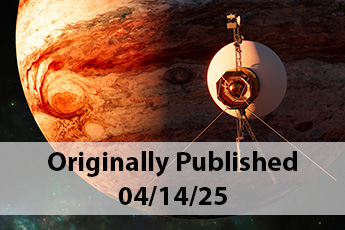One day in 2737 B.C., Chinese emperor Shennong was sitting beneath a small tree when some leaves fell into a nearby pot of boiling water. Nung, an herbalist, decided to taste it, pronounced it good, and the practice of drinking hot tea was born. Not long after Emperor Nung’s Isaac Newton moment, tea drinkers began noticing the unusual shapes that appeared in the dregs left behind in the cup. Was that odd shape a bird? Was it an omen of something else? Soon enough, the practice of tasseography was born, as seers divined the future by examining leftover tea leaves. Tea Leaves and EconomistsReading the tea leaves has survived through the centuries and the expression has also become an idiom for predicting the future. These days, economists and analysts who try to predict the direction of markets are often described as reading the tea leaves.In recent months, it seems their predictions have had all the gravitas of a seer gazing into a teacup. One sees a recession, another a soft landing, a third a boom. What’s a banker to make of it all?
Financial institutions trying to plan for the near future face the daunting task of deciphering in which direction the economy is headed. As the Fed tightens interest rates, should institutions plan for a recession and rein in lending? Or will business growth remain strong, making it a good time to extend credit?It all adds up to a “maybe” economy — maybe things are looking up, maybe they’re not. As bankers try to thread the needle on all this uncertainty, here’s a look at what some big-name predictors are saying:
Financial institutions trying to plan for the near future face the daunting task of deciphering in which direction the economy is headed. As the Fed tightens interest rates, should institutions plan for a recession and rein in lending? Or will business growth remain strong, making it a good time to extend credit?It all adds up to a “maybe” economy — maybe things are looking up, maybe they’re not. As bankers try to thread the needle on all this uncertainty, here’s a look at what some big-name predictors are saying:
- Paul Krugman, the Nobel-Prize-Winning economist and columnist, says things are looking up. Inflation, which has been under assault by the Fed, is clearly down and moving in the right direction, he says. Soft landing, here we come! He offers lots of dense economist-speak to back up his thesis, but he also offers some more esoteric signs. For example, he notes that Google searches for “inflation” are way down. That’s a wisdom-of-the-masses kind of logic: If average Americans aren’t concerned enough to be Googling inflation, then the country as a whole shouldn’t be too worried about it either.
- The Atlanta Fed, in its GDPNow model, predicted as of September 19 that GDP growth in the third quarter of 2023 would hit an astonishing 4.9%, double what many other models were foreseeing. That rosy outlook had many other economists scratching their heads. Even Krugman cast a skeptical glance at that prediction.
- On the other side stands Bridgewater Associates, the world’s largest hedge fund, whose strategies revolve around macroeconomic predictions. The company’s co-chief investment officer, Greg Jensen, recently said that inflation risks remain elevated and we should expect a stock market dive and recession in the near future. The only thing that has dampened the impact of rising rates has been the flood of government investment since COVID-19 hit in 2020, propping an economy that is not as robust as it appears.
- Community financial institutions have come down fairly solidly on Jensen’s side so far. According to a recent survey by IntraFi, nearly three-quarters of bankers said they don’t think the Fed can manage a soft landing, and instead expect an economic downturn. Moreover, half of those surveyed said their loan demand compared to a year ago had experienced either a moderate or serious decline.
How are you supposed to proceed in light of such vastly different predictions? With great caution. Maybe the best strategy in responding to our “maybe” economy is to prepare for the worst while trying to continue with business as usual. We will be sure to keep you updated.




